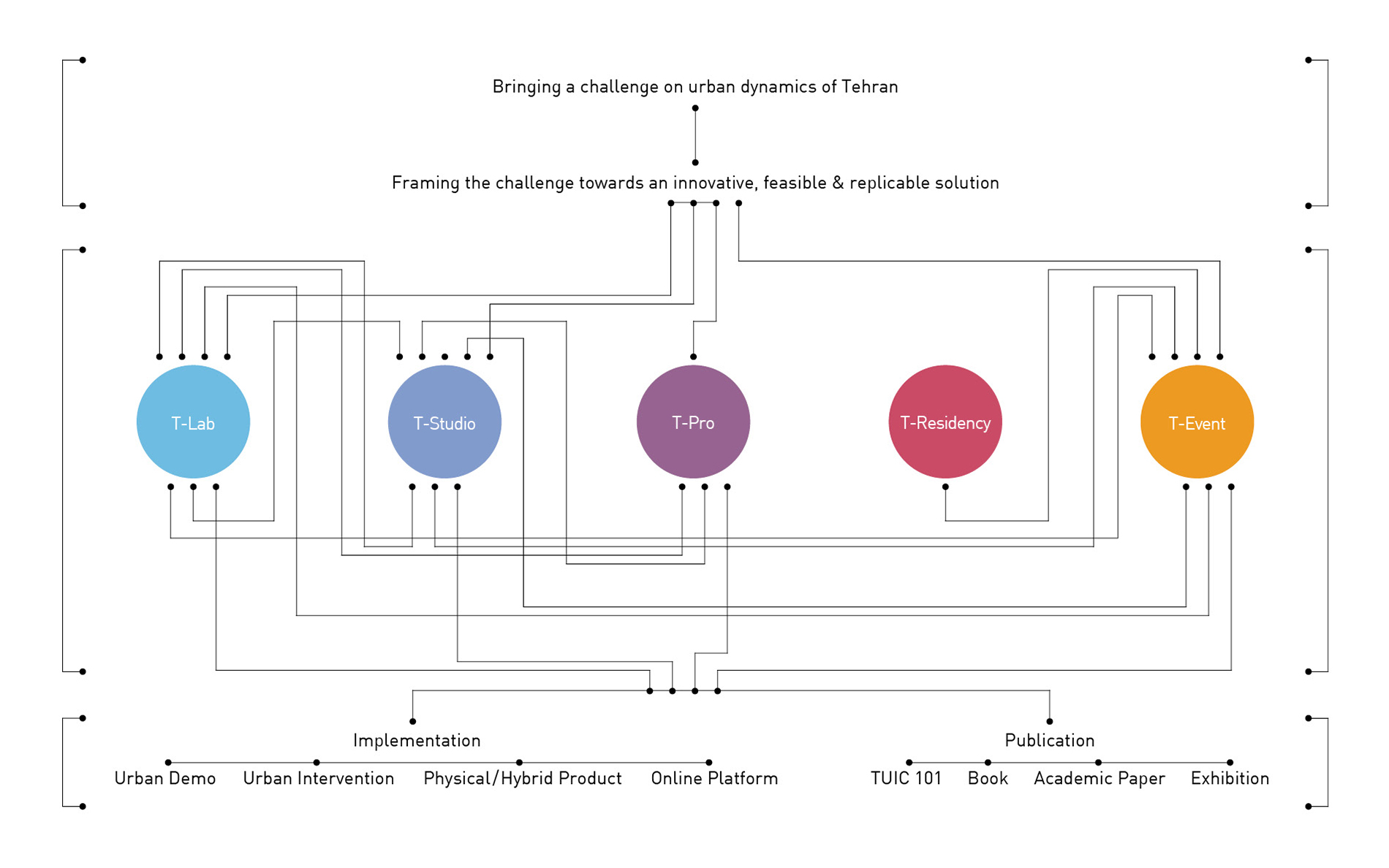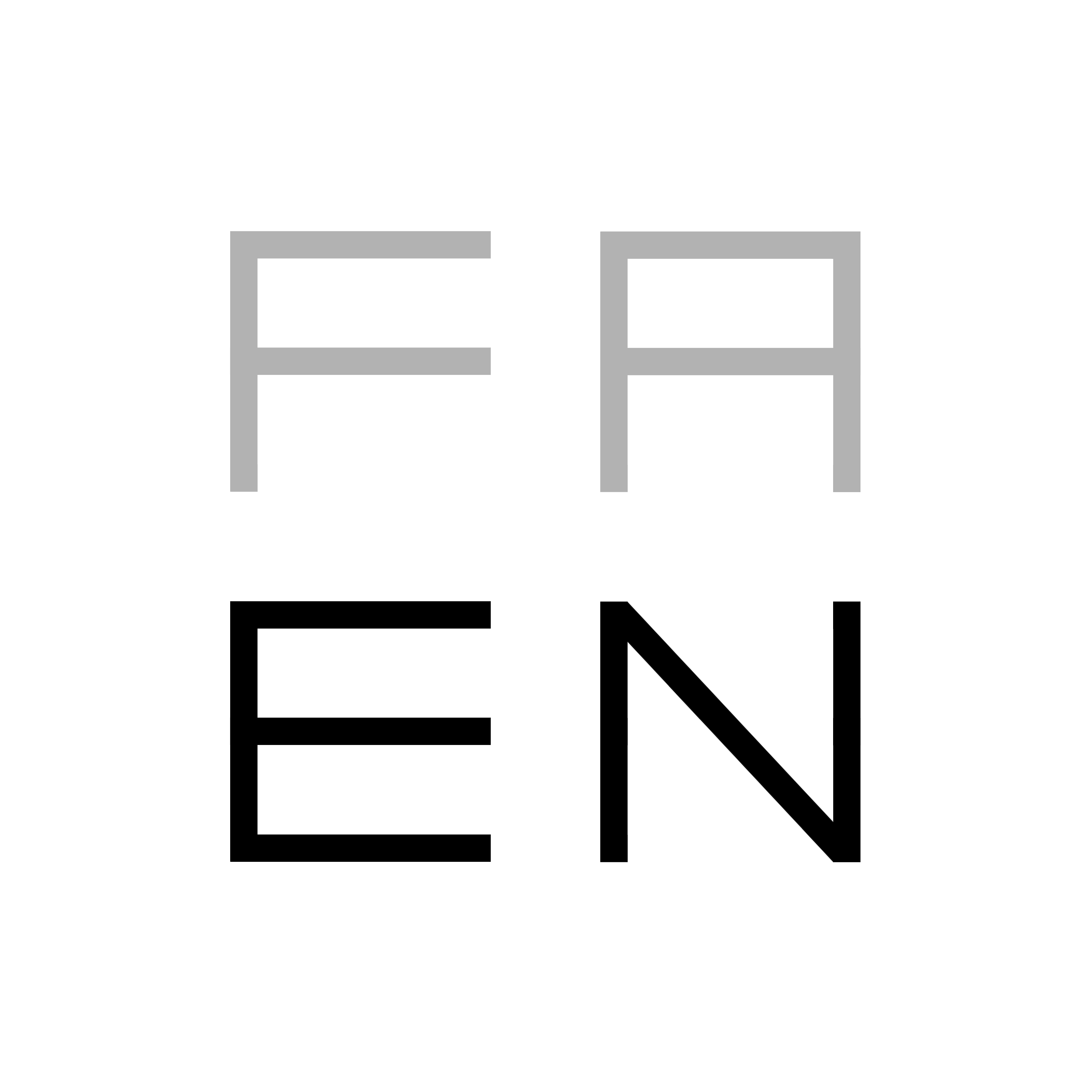About Us

[ What is TUIC? ]
Established in 2016 by [Shift] Process Practice, Tehran Urban Innovation Center (TUIC) is a design-by-research, research-by-design practice, dedicated to providing innovative, feasible, and replicable solutions for urban challenges of Tehran. TUIC aims at creating value across the global network of urban innovation, through producing, exchanging and implementing knowledge within the framework of mode-2 knowledge production.
[Shift] Process Practice office and Behineh Sazan Rojan Company, in line with the realization of the common goals of the parties to develop smart solutions in urban management and create modern infrastructure in Iranian cities, signed a memorandum of understanding with the aim of developing research and technology. related to smart cities in Iran have signed on January 11, 2015.The subject of this memorandum includes research and research in the field of smart cities, the training of specialized human resources and the production and publication of scientific-research reports, and the purpose of this agreement is to create a platform for the use of advanced technologies in order to improve the quality of life of citizens, sustainable management of resources. , and increasing the efficiency of urban services has been determined. This memorandum provides a framework for extensive cooperation between the two institutions, which includes the following: Implementation of research projects in areas such as smart infrastructure, big data management, and sustainable transportation technologies. Designing and holding training courses and specialized workshops for training skilled human resources in various fields, including smart urban management and sustainable environmental technologies. Compilation and publication of research results in the form of articles, scientific reports, and educational content to promote general and specialized awareness in this field. Holding scientific meetings and seminars to exchange ideas and share achievements with universities, research centers, and other related institutions.
[ TUIC’s field of activity ]
Spatial practices cover a vast range of services and products, associated with the physical space in the scale of objects, buildings, and cities. These services and products include hard and soft urban infrastructure, urban experiences, building components, urban furniture, and digital/smart/location-based/interactive urban services.
[ The key principles followed by TUIC ]
TUIC works in small scale with big scope. We suggest that urban development in Tehran is more about actions that are micro-targeted, low-cost, democratic, empowering, and small-scale. However, such actions are more probable to make impact if they are arranged in a coherent body of practices, following a snowball effect metaphor.
TUIC adopts itself with situations. We are trying to examine inspiring processes and projects within a relatively complicated socio-economic context in the heart of the middle east. In order to keep its agenda relevant to the context, TUIC continuously follows the ruling forces that shape the qualities of the context.
TUIC follows the Mode-2 knowledge production. We suggest that implementing projects in the sector of urban innovation requires models of knowledge production that are context-driven, focused on real world challenges, and involved interdisciplinary teams. These are the key principals of Mode-2 knowledge production.
TUIC provides free access to its produced knowledge. We believe in equity in education and distribution of knowledge. Each project at TUIC is followed by further documentation of its produced knowledge with free access to the public. As the main line of publications, TUIC101 is a series of online publications, each one framing 101 agile points on a subject associated with urban innovation.
TUIC is not a structured organization, but a self-organized platform. We suggest that practicing innovation requires a fluid and heterarchical organization model, as opposed to hierarchical one. At TUIC, we try to decentralize the authority of decision-making, capitalizing on the potential of the individuals as a key asset to shape a sustainable future for the organization.
[ TUIC’s Operating System ]
The urban innovation process at TUIC initiates with emergence of an idea in the realm of spatial practices. The idea flows into one of the five incubation programs (T-Lab, T-Studio, T-Pro, T-Residency, and T-Events) and might move around the others, ending up with a series of potential outcomes with the capability of further development. This operating system is open to re-adjust itself according to the emerging flows of ideas.
T-Lab
T-Lab provides one-to-one mentorship service, access to the extended network of experts, and offering working facilities, all for free and with the aim of supporting volunteer researchers and creatives from the very first moment of ideation to the very last moment of implementation and publication. The projects incubated at T-Lab can lead to minimum working prototypes, academic papers, TUIC101 publications, and exhibitions, as tangible outcomes with the potential for further development.
T-Studio
T-Studio as the pedagogical program of TUIC brings up the opportunity for a limited number of academic graduates to learn the design-by-research/research-by-design process to tackle real-world urban challenges. T-Studio offers two types of studios. The first type gets organized and managed directly by senior researchers and advisors of TUIC; namely the Opportunistic Urbanism seasonal studios (2018 to present), SmartSeat Studio in collaboration with Soft Haptics & Robotics Lab at University College London (2018), and Remorph series (2017). The second type of the studios are the ones which are lead by senior researchers and advisors of TUIC, yet managed by guest researchers. As an example, TUIC hosted the 2016 Global Summer School in collaboration with the Institute for Advanced Architecture of Catalonia (IAAC), as well as FLIP workshop on Tactical Urbanism (2018).
T-Pro
Through T-Pro program, TUIC provides professional services to both public and private sector entities as consultant or partner.
This program covers services that are defined under a greater umbrella of spatial system design; from designing hybrid platforms and interaction scenarios, to research on urban trends and sustainable contemporary lifestyle.
T-Residency
T-Residency offers volunteer makers, sculptors, and fabricators who work with digital and analog machines, to carry out their independent activities at the co-working space of TUIC. The residents can also develop their projects in collaboration with TUIC.
T-Event
T-Events aims at strengthening the ties between TUIC and the network of professionals and experts who are trying to make impact in their own fields of activity. The transdisciplinary events are eventually meant to apply novel discourses in the realm of urban innovation, and include symposiums, panels, and lecture series. Water symposium (2017), TUIC Think-Tank round-tables (2017), and 2020 lecture series (2019-present) are examples of what have been done under the T-Event program.

